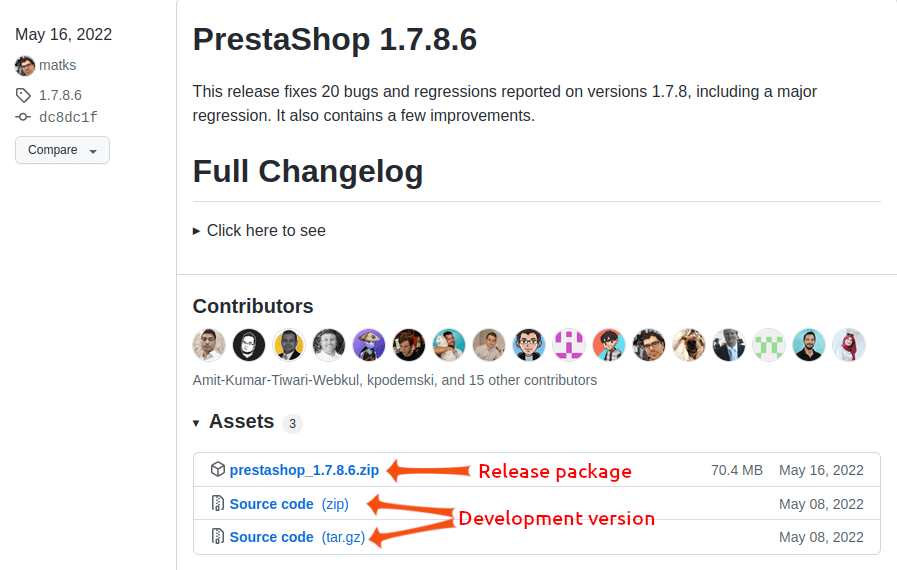PrestaShop 8 Installation
Downloading PrestaShop
The source code of PrestaShop is hosted on the Official PrestaShop GitHub Repository.
You can find all the released versions of PrestaShop here: PrestaShop releases.
Nightly releases of PrestaShop are also generated daily. Their details can be found on a public Google Cloud storage.
Choosing the right version for you
PrestaShop comes in two “flavors”:
- Release package. A zip package, tuned for production environments.
- Development version. The raw source code as it is on the GitHub repository, including automated test suites, build scripts, and source codes for assets that are otherwise compiled (like javascript and CSS files).
Prefer cloning the repository using git for the development version.
If you intend to work on PrestaShop itself, we suggest using Git to clone the source code of PrestaShop from the GitHub repository.
Installing PrestaShop
Open the PrestaShop installer and follow its instructions.
Depending on whether you downloaded a release package or cloned the repository, the route to the installer will be slightly different:
- Release package: http://127.0.0.1/prestashop/install
- Development version: http://127.0.0.1/prestashop/install-dev
You can read the Getting Started guide for more details.
Installing a local environment
Installing any web application locally requires that you first install the adequate environment, namely the Apache web server, the PHP language interpreter, the MySQL database server, and ideally a MySQL admin tool such as phpMyAdmin tool.
This is called an *AMP package: Apache+MySQL+PHP and the operating system, giving WAMP (Windows+Apache+MySQL+PHP), MAMP (Mac OS X+…), and LAMP (Linux+…). Since all of the items packaged are open-source, these installers are most of the time free.
Here is a selection of free AMP installers:
- XAMPP (Windows, Mac OS X, Linux, Solaris)
- WampServer (Windows)
- EasyPHP (Windows)
- MAMP (Windows, Mac OS X)
- Laragon (Windows)
To install LAMP on your computer follow these steps (tested on Debian Buster).
- Update your system
apt update - Install MySQL
apt install default-mysql-server default-mysql-client - Install Apache server
apt install apache2- Install PHP
apt install libapache2-mod-php7.3 php7.3 php7.3-common php7.3-curl php7.3-gd php7.3-imagick php7.3-mbstring php7.3-mysql php7.3-json php7.3-xsl php7.3-intl php7.3-zip
- Install PHP


